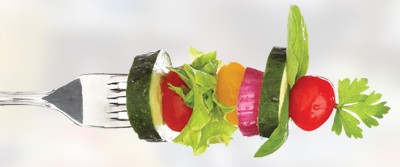Taste Isn’t Just Tongue-Tied

By Kevin Ritchart
The concept that we eat first with our eyes is a commonly held tenet among members of the culinary community. But how a dish looks when it’s served or how different smells waft through the air while a meal is being prepared are just small parts of the overall taste experience.
The tongue can recognize five different taste profiles — sweet, salty, sour, bitter and umami, a Japanese word that accounts for the taste of savory foods like meats and mushrooms. Umami, which means “delicious,” was added to the tongue’s taste profile in 2002. Each of these tastes corresponds to taste receptors on the tongue that send signals to the brain when a receptor is triggered. This is what allows us to identify different tastes.
Recent studies have shown that there are seven additional factors that can influence our sense of taste: Language, utensils, temperature, color, environment, expectations and memory have proven to change the way we experience food and drink.
Using descriptive language when speaking or writing about a dish has shown that it can change a person’s attitude about food. People tend to praise food more if it’s described in more detail. Though more research is needed on the subject, studies have shown that spoons made of copper or zinc can enhance the apparent saltiness of foods.
The Mental Aspects of Taste
Temperature also can change the way we perceive taste. Similarly, the color of our food — or the color of the plates it’s served on — can impact our feelings about the food. A recent study found that nearly half of the participants who drank soda from a blue glass found it to be a more satisfying experience, likely because they associate the color blue with the soda being cold.
Environment and expectations play a big part in how things taste to us. Eating at an expensive restaurant is likely to heighten a culinary experience prior to walking through the door. A pricey meal carries with it the expectation of higher-quality ingredients, which, in turn, elevates our opinion of the food that’s served.
Our memories of particular types of food — and our most recent experiences tasting that type of food — also cause us to alter our opinions. In addition, studies have shown that people with certain diseases suffer from taste distortions, a condition known as dysgeusia. Mental stress and physical fatigue also have a negative effect on our ability to discern certain tastes.
DISCUSSION QUESTIONS
Is there a food that evokes a strong memory for you? Discuss what that is and why.
Are there foods that taste different to you based on where you are when you eat them?
VOCABULARY
- Umami
- Dysgeusia
Hungry to learn more about taste? Check out these other articles: